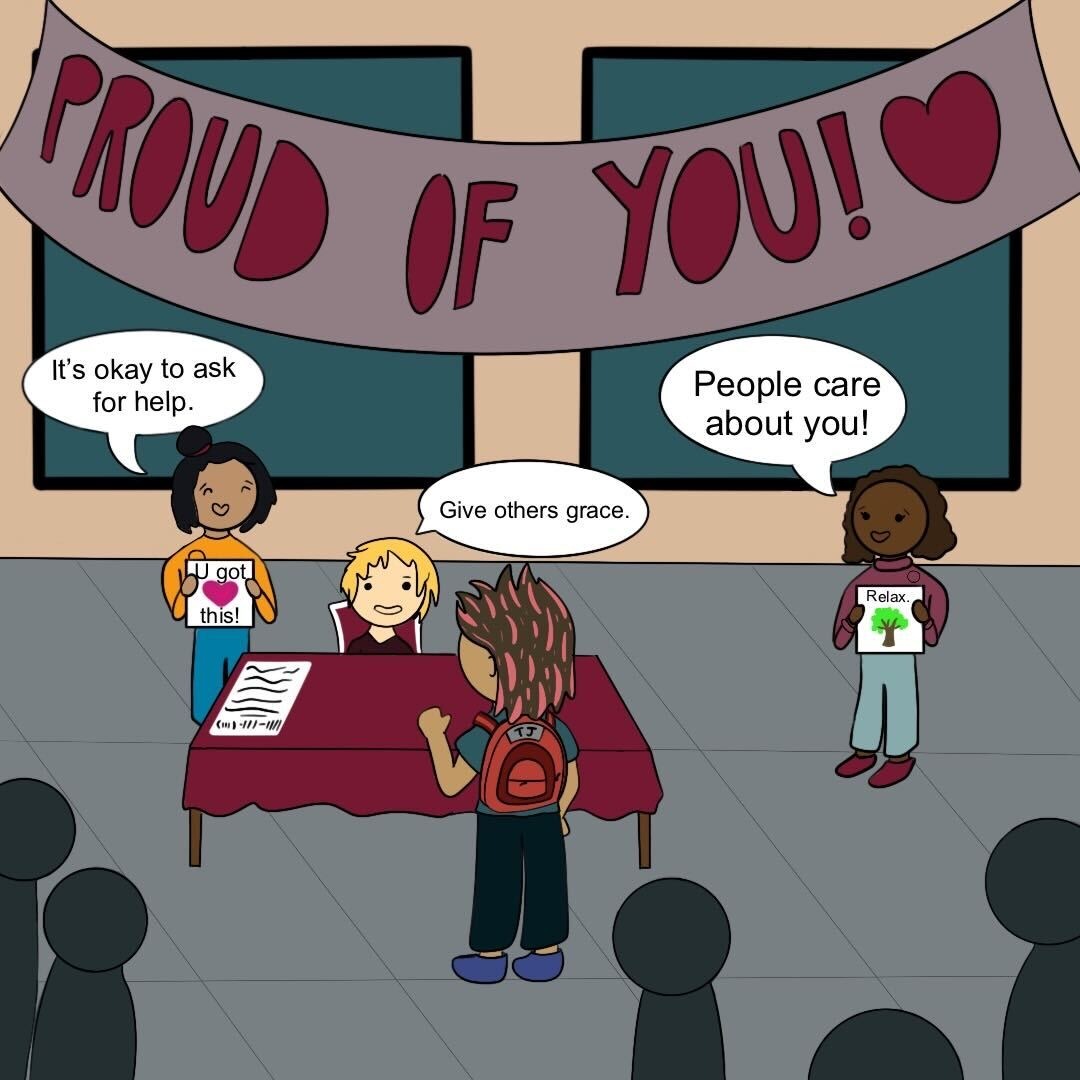The holidays have been over for weeks now, and a new year is in full effect with people sharing their hopes and resolutions, among the most popular being weight loss.
What is not often mentioned is that this seemingly innocuous goal leads into a rabbit hole of toxic and dangerous mentalities, not to mention hundreds of dollars wasted.
To see an issue in one’s current lifestyle and want to make a change is an admirable goal. According to the Centers for Disease Control and Prevention (CDC), about 42% of adults in the U.S. are overweight. There should be zero doubt that obesity is a very real and prevalent issue in the U.S.
However, the problem is health companies view obesity as a new market worthy of exploitation. The diet industry created an unhealthy and toxic narrative around weight loss and healthy living, which facilitates diatribe against certain foods, to promote its own causes and create a more fat-phobic society. Thus, Diet Culture was born.
Even if one does successfully complete a diet and lose weight, 95% of people gain the weight back in one to five years. Diets are not always sustainable.
Americans spent on average about $60.9 billion on dieting in 2010. When thinking of Diet Culture, carb restrictions, calorie restrictions and cleansing come to mind. However, the extent of Diet Culture supersedes a lot more than just diets. It is a mindset that oppresses the masses into glorifying unattainable goals.
Christy Harrison, an anti-diet registered dietitian nutritionist and author, defines Diet Culture as a system of beliefs that “worship thinness and equates it to health and moral virtue…demonizing certain ways of eating while elevating others.” She adds that it is a system that “oppresses people who don’t match up with this supposed picture of health.”
Far too often, people put their faith, time and money into something that causes them mental and physical harm. The Diet Culture industry willingly shell out people’s wallets for ads to actively bully them. That is the exact definition of toxic; something that is “very harmful or unpleasant in a pervasive or insidious way.”
Diet Culture is not some altruistic version of health that if someone just remains “disciplined” they can achieve their “dream body.” It is tyrant capitalism running amuck.
Weight loss companies broadcast ads and images of a glamorized skinny and toned body, and people see it and deem themselves less than or not as fit as the person advertised. The pills, fat-burning teas and detox juices are then purchased to fit a body type.
Kamryn Klepper, an exercise and sports science senior, says social media and advertisements play a big role in the Diet Culture bandwagon.
“It’s so easy to get caught up in what everyone else seems to be doing, especially with social media,” Klepper says. “You constantly see what you ‘should’ be eating and how you ‘should’ be working out. Even with my major and educational background on the subject, it’s really easy to think about making somewhat extreme decisions to change what I look like.”
This is a marketing strategy, not a realistic version of health. Company marketing teams, occupied by people who are not qualified health practicians, create ads with the idea of fiscal profits in mind, not to benefit one’s health.
This is the most important thing to understand about Diet Culture. Think of diets like companies selling cigarettes in the 60s. Back then it was deemed cool, but now we know how harmful cigarettes are to the human body.
Furthermore, nutritionists stress that thin does not equal healthy. Some can have a healthy metabolic rate as a thin or thicker person. However, that does not mean a happy or healthy life relies solely on metabolic rate.
Krissy Lines, a registered dietitian working with Texas State Athletics to educate student-athletes about nutrition performance, says health is more like “a pie chart,” which encompasses “physical health, emotional health, cognitive well-being and maybe even faith or religion.”
“Health means a lot more than how much we weigh,” Lines says. “What works for one person is not going to work for someone [else].”
Bodies will change constantly; it is natural. Weight is like a rollercoaster. It is not supposed to stay the same throughout one’s whole life. Factors, such as water retention, hormones and environment all play a part in one’s physical weight. The number on the scale does not take into account any of the aforementioned variables when showing a number.
Diet Culture is also a trojan horse when it comes to mental health. Over 9% of the population has an eating disorder, one of the deadliest mental illnesses next to opioid addiction. When eating disorder patients are constantly bombarded by weight-phobic media and surrounded by weight loss products, the recovery process becomes more difficult.
Mental illness is the lasting effect of Diet Culture. It is a toxic cycle that needs to end. One’s personal worth does not stem from how many calories they eat on any given day.
To avoid the toxicity of Diet Culture, look for lifestyles that are sustainable. A happy life is a healthy life.
In 2021, rejecting this toxic and ineffective culture should be a top priority. Instead, the focus should be on staying active and providing the body with the nutrients needed.
– Lindsey Salisbury is an English sophomore
The University Star welcomes Letters to the Editor from its readers. All submissions are reviewed and considered by the Editor-in-Chief and Opinion Editor for publication. Not all letters are guaranteed for publication.
Opinion: Diet Culture enables unhealthy lifestyles
Lindsey Salisbury, Opinion Contributor
January 26, 2021

Diet Culture
0
Donate to The University Star
Your donation will support the student journalists of Texas State University. Your contribution will allow us to purchase equipment and cover our annual website hosting costs.
More to Discover










